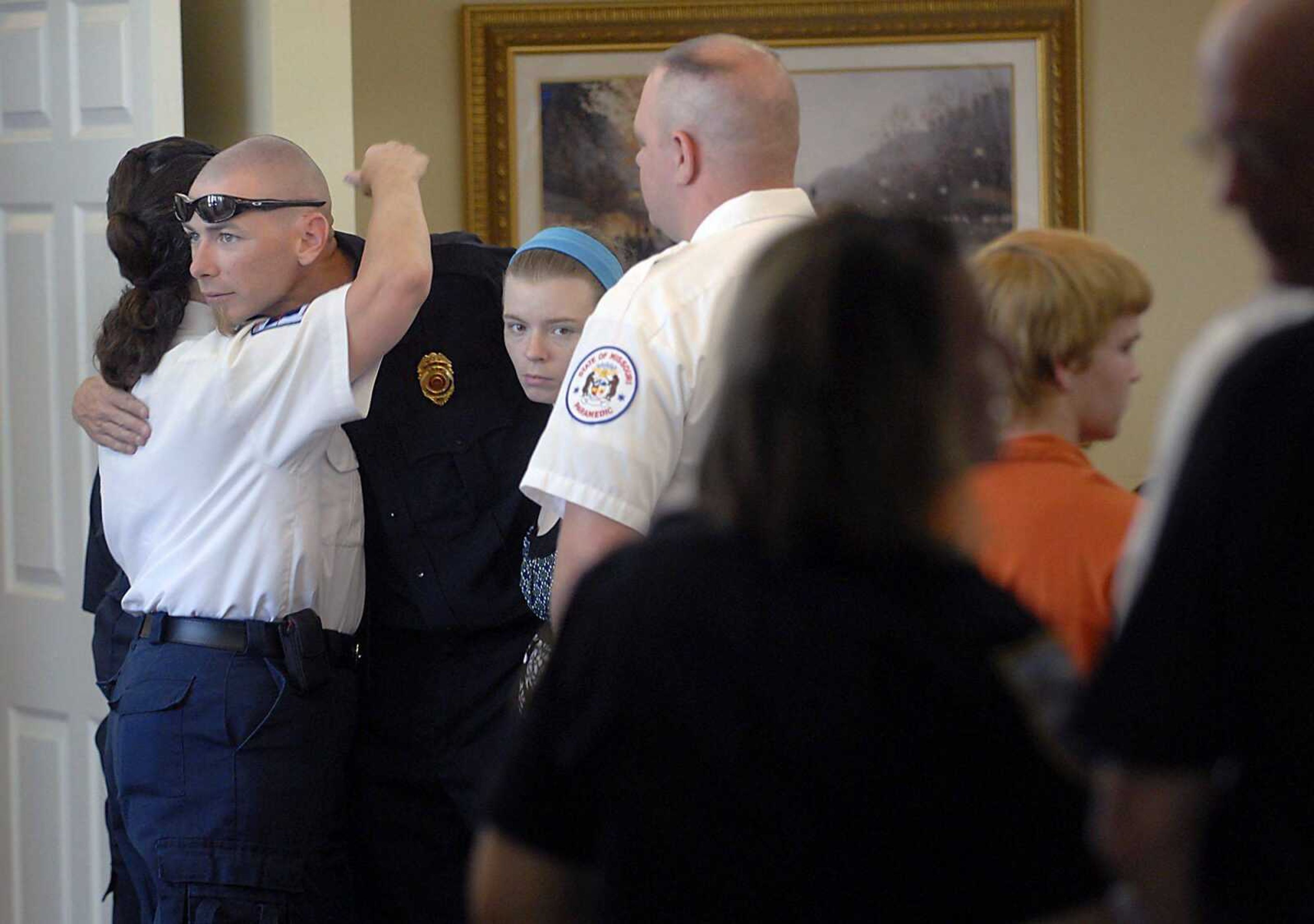Emergency personnel, Oran community still struggling to cope with accident that killed two teens
ORAN, Mo. -- A week after a wreck killed two Oran teens and left four others injured, emergency personnel and the community are still struggling to cope with the loss. Many of the firefighters, paramedics and law enforcement officers who responded to the crash knew at least some of the victims, something that is unavoidable in a town of about 1,200...
ORAN, Mo. -- A week after a wreck killed two Oran teens and left four others injured, emergency personnel and the community are still struggling to cope with the loss.
Many of the firefighters, paramedics and law enforcement officers who responded to the crash knew at least some of the victims, something that is unavoidable in a town of about 1,200.
Alexis "Lexi" Cummins, 14, and Austin Todt, 16, who died in the single-vehicle accident, both attended Oran High School, a hub of the community.
Alexis' father, Steve, serves as assistant chief firefighter of Oran's volunteer fire district.
"Our fire department's like one big old family," said Oran battalion chief David Jones. "It hurts the whole department."
Two other Oran teens injured in the accident, brothers Brandon Phillips, 18, and Brent Phillips, 16, are cadets in the fire district, Jones said. Brandon Phillips had finished cadet training and was ready to become a firefighter at the time of the accident.
"I deal with that stuff every day, but I've never had anything hit me like this," Jones said.
Oran firefighter Ray Cook said he knew five of the six teens involved, most of them since they were born.
In a small town, it's rare to get called to a car accident where you know none of the victims, Cook said, but last week's wreck affected him like no other.
Scott County Sheriff Rick Walter, who also knew some of the victims, said severe traffic accidents can often be difficult for emergency responders to handle.
"This time, it was also personal for a lot of them," Walter said.
Walter said he typically relies on local chaplains for assisting emergency responders through such ordeals. He hosted a "debriefing" with the Rev. John Harth for anyone who wished to attend.
"The object is to help the folks deal with what they're experiencing," Harth said.
Harth said he discussed the signs of post-traumatic stress disorder, focusing on the principle that these were "common reactions to an uncommon situation."
Debriefings should ideally be held within the first 24 to 72 hours after the event and be open only to those who actually responded to the scene, said Debi Oliver, regional coordinator for the Region E Critical Incident Stress Management Team, a part of the International Critical Incident Stress Foundation Inc. The regional team is made up of two chaplains, three paramedics, two firefighters, four law enforcement officers, one dispatcher and four mental health professionals, Oliver said.
Eighty percent of Americans will be exposed to a traumatic death sometime in their lives, Oliver said, and with emergency responders that percentage is much higher.
Oliver said a "critical incident" can "create significant human distress and can overwhelm an individual's coping mechanisms."
Crisis intervention is not psychotherapy, she said. Instead, it is a short-term process to lessen the severity of the crisis response.
Walter praised the way emergency responders handled the crash, despite the personal loss for many of them.
"That's the most any first responder can do; they do their jobs and deal with it later," Walter said.
Both Cook and Jones said they've tried to stay busy to keep from dwelling on the accident.
"I stay pretty busy at work. Usually when you go on a scene, you're focused on the help you have to give that patient," Jones said. "It's at night, when I'm lying there, that it haunts me."
Cook said he thinks the wreck will stay with responders the rest of their lives.
"It keeps running through my head, pulling up on that scene that morning," Cook said.
Firefighters have tried to talk to one another about the wreck and lend as much support to the victims' families as possible, as has the Oran community, Cook said.
"The town has pulled people together more than I've ever seen," Cook said.
Anyone wanting to know more about crisis intervention or needing to talk to someone can contact a toll free hot line at 1-800-609-1559, or Debi Oliver at 355-6621, extension 1230.
bdicosmo@semissourian.com
388-3635
Connect with the Southeast Missourian Newsroom:
For corrections to this story or other insights for the editor, click here. To submit a letter to the editor, click here. To learn about the Southeast Missourian’s AI Policy, click here.









